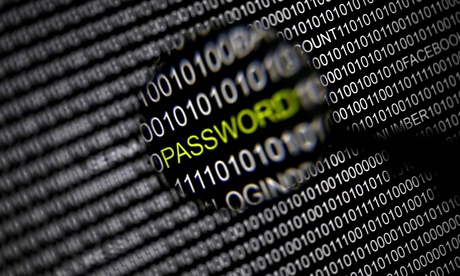
In June the Friends of the Global Fight Against Aids Tuberculosis and Malaria was hacked, revealing that NGOs are as vulnerable to cyber crime as other organisations. It's not just websites that are at risk. An organisation's whole IT infrastructure could be tampered with by malevolent forces, jeopardising its work. Private data, particularly of wealthy donors, is a tempting prize of for internet cat burglars. If not for financial reward, hackers such as the Syrian Electronic Army who target news organisations are politically motivated.
"Hacking can undermine institutional confidence in a company, exposing its attitude to security and the loss of personal data in a highly public way can result in damage to an organisation's reputation," said the Symantec Internet Security Threat Report 2014.
As well as those operating out of state control, NGOs can have their work and staff safety compromised by government surveillance. Following the Edward Snowden revelations human rights groups and civil society organisations, including Pen International, Amnesty International and Human Rights Watch, wrote a joint letter to the US and UK governments asking if the allegations are true. The letter says that if the governments do access and exchange confidential information they "put victims and human rights defenders the world over in imminent danger".
What protective measures can be put in place to ward against hacking and surveillance? And what other cyber threats are development organisations vulnerable to? How can they be avoided? Join our expert panel to find out on Thursday 24 July, 2-4pm BST.
The panel
Greg Day, vice president, Europe, the Middle East and Africa, FireEye, London, UK, @FireEye
Greg has over twenty years' experience in internet security. He works with government organisations and global enterprises on cyber strategies.
Mohammad Farooq, digital security trainer, Digital Rights Foundation, Lahore, Pakistan, @MohammadFarooq_,
Internet security trainer with a particular interest in privacy-related issues.
Laura Schauble, associate director, commercial insurance, Clements Worldwide, Washington DC, @Tweet_Clements
Laura joined Clements Worldwide in 2003 and has over 13 years of insurance experience.
Ado A. Machida, president, International Stability Operations Association, Washington DC
The International Stability Operations Association is a global partnership. Ado has worked as a principal staffer for the US government.
Becky Kazansky, researcher, Tactical Tech, Berlin, Germany, @pondswimmer
Becky is leading research on sustainable and effective digital security practices for human rights defenders.
Jim Loughran, head of media and communications, Front Line Defenders, @FrontLineHRD, Dublin, Ireland
Front Line Defenders provides security support to human rights defenders via grants, training, resources and advocacy.
Dr Richard Tynan, technologist, Privacy International, London, UK, @richietynan
Richard is an expert in privacy and technology issues.
The live chat is not video or audio-enabled but will take place in the comments section (below). Get in touch via globaldevpros@theguardian.com or @GuardianGDP on Twitter to recommend someone for our expert panel. Follow the discussion using the hashtag #globaldevlive.
Want to hear about more events like this? Join our LinkedIn community
Join the community of global development professionals and experts. Become a GDPN member to get more stories like this direct to your inbox

